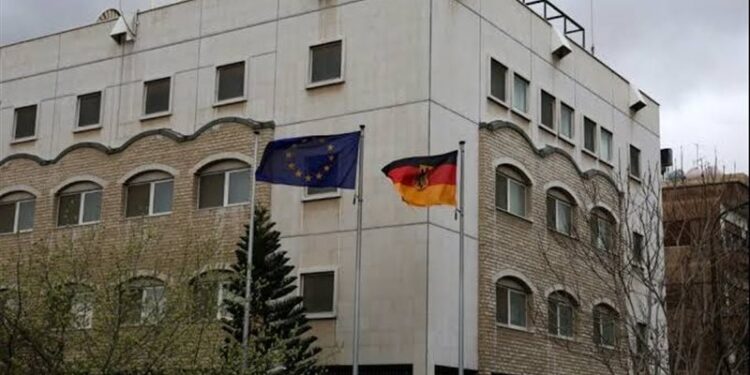Germany officially reopened its embassy in Damascus, according to a source from the German Foreign Ministry, coinciding with a visit by Foreign Minister Annalena Baerbock to the Syrian capital. The embassy had closed its doors in 2012 following the outbreak of protests against Bashar al-Assad’s regime, which later escalated into a civil war. Three months after Assad’s fall, Baerbock oversaw the reopening of the diplomatic mission in Damascus, aiming to support Syria’s stability and reconstruction after years of devastation.
The minister explained that a limited number of diplomats will currently staff the embassy, with security arrangements to be finalized from other locations later. Diplomat Stefan Schneck has been tasked with temporarily managing the mission until a permanent ambassador is appointed. Previously, the embassy housed between 25 and 30 diplomats and around 20 local staff, but it had remained abandoned since its closure 13 years ago for security reasons. During a prior visit to the building in January, Baerbock noted that a photograph of former German President Christian Wulff still hung on the wall, while a local employee had been maintaining the premises for decades.
The official source confirmed that a small team will manage operations in Damascus, with consular services remaining at the German embassy in Beirut due to the unstable security situation following Assad’s ousting on December 8. The source stated, “Germany is committed to supporting Syrians toward a better future after the end of Assad’s rule, and our presence in Damascus strengthens our contribution to achieving stability.” They added that this presence will enable Berlin to enhance diplomatic communication, support an inclusive political process that considers all segments of the Syrian population, engage directly with civil society, and address any sudden deterioration.
Baerbock urged the new Syrian authorities to ensure security for all, particularly after recent violent incidents that reportedly claimed around 1,500 lives on the Syrian coast, according to unverified reports. In a statement, she said, “The recent violence has undermined Syrians’ confidence in their transitional government,” calling on it to control internal factions and hold those responsible for the clashes accountable. She stressed that “the new government faces a significant challenge to ensure peace and prosperity in a country torn apart by a 14-year war.” She noted that the wave of violence in March was the most severe since Assad’s fall, underscoring the urgent need to restore trust and bolster stability.







